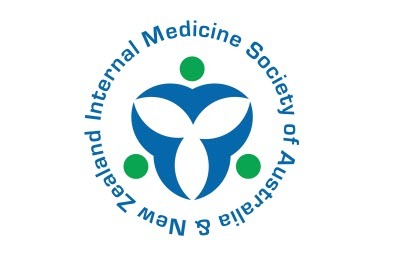Internal Medicine Society of Australia and New Zealand
Recommendations from the Internal Medicine Society of Australia and New Zealand on avoiding medication-related harm, monitoring antibiotic treatment, fainting and CT pulmonary angiography. IMSANZ represents over 700 Consultant Physicians and trainees in Internal Medicine (also known as General Medicine or General and Acute Care Medicine) within Australia and New Zealand. The Society provides a mechanism for developing the academic and professional profile of general medicine and seeks to advocate for, and sponsor the educational training, research and workforce requirements of general internal medicine.

4.
Don’t request Holter monitoring, carotid duplex scans, echocardiography, electroencephalograms (EEGs) or telemetry in patients with first presentation of uncomplicated syncope and no high risk features.
Holter monitoring, carotid duplex scans, echocardiography, electroencephalograms (EEGs) and telemetry have very low diagnostic yield in patients with uncomplicated syncope and no clinical features of, or risk factors for, the following:
- arrhythmia (e.g. palpitations preceding syncope, exertional syncope, unheralded syncope, history suggestive of heart failure or ischaemic heart disease)
- carotid stenosis (syncope would need to be associated with focal neurological symptoms or signs suggestive of transient ischaemic attack)
- cardiac valvular disorders (e.g. definite heart murmurs) or
- seizures (very rarely present as syncope with no other epileptic features e.g. tongue biting, urinary incontinence, post-ictal confusion, muscle pain).
Most syncopal episodes are vasovagal or secondary to postural hypotension for which careful history, and lying and standing blood pressure measurements are the most important diagnostic criteria combined with standard 12-lead ECG.
Supporting evidence
- Johnson P, Ammar H, Zohdy W, et al. Yield of diagnostic tests and its impact on cost in adult patients with syncope presenting to a community hospital. South Med J 2014; 107(11):707-14.
- Mendu ML, McAvay G, Lampert R, et al. Yield of diagnostic tests in evaluating syncopal episodes in older patients. Arch Intern Med 2009; 169(14):1299-305.
- Parry SW, Tan MP. An approach to the evaluation and management of syncope in adults. BMJ 2010; 340:c880.
- The Task Force for the Diagnosis and Management of Syncope of the European Society of Cardiology (ESC). Guidelines for the diagnosis and management of syncope (version 2009). Eur Heart J 2009; 30:2631-71.
A panel of IMSANZ members produced an initial list of 32 low value tests, treatments and management decisions frequently encountered in general medicine services. This initial list was distributed via e-mail to 350 members of a working group comprising approximately 50 general physicians as well as nurses and allied health professionals who ranked the items in terms of priority and were free to nominate additional items. Based on their responses, the list was condensed to 15 items including three which were not previously listed. These 15 items were the subject of a face-to-face forum of the working group which reached consensus on a final list of 10.
Recommendations on ‘what not to do’ were formulated around these 10 items and a summary of the evidence for each recommendation was prepared. An online survey based on this work was presented to, and approved by, IMSANZ Council. The survey was sent to all IMSANZ members asking respondents to assign a score from 1 to 5 for each recommendation on three criteria: ‘The clinical practice being targeted by this recommendation is still being undertaken in significant numbers’; ‘This recommendation is evidence-based’; and ‘This recommendation is important in terms of reducing harm to patients and/or costs to the healthcare system’. The survey attracted 182 respondents from all across Australia and New Zealand, which was a response rate of 26%. The final top five chosen were the recommendations with the five highest average total scores assigned to them.
Related recommendations
- 1 Avoid medication-related harm in older patients (>65 years) receiving 5 or more regularly used medicines by performing a complete medication review and deprescribing whenever appropriate.
- 2 Don’t request daily full blood counts, erythrocyte sedimentation rate (ESR) or C-reactive protein (CRP) as measures of response to antibiotic treatment if patients are clinically improving.
- 3 Once patients have become afebrile (non-feverish) and are clinically improving, don’t continue prescribing intravenous antibiotics to those with uncomplicated infections and no high-risk features if they are tolerant of oral antibiotics.
- 4 Don’t request Holter monitoring, carotid duplex scans, echocardiography, electroencephalograms (EEGs) or telemetry in patients with first presentation of uncomplicated syncope and no high risk features.
-
5
Don’t request computerised tomography pulmonary angiography (CTPA) as first-choice investigation in non-pregnant adult patients with low risk of pulmonary thromboembolism (PTE) by Wells’ score (score <= 4); imaging can be avoided in low risk patients if D-dimer test is negative after adjusting for age